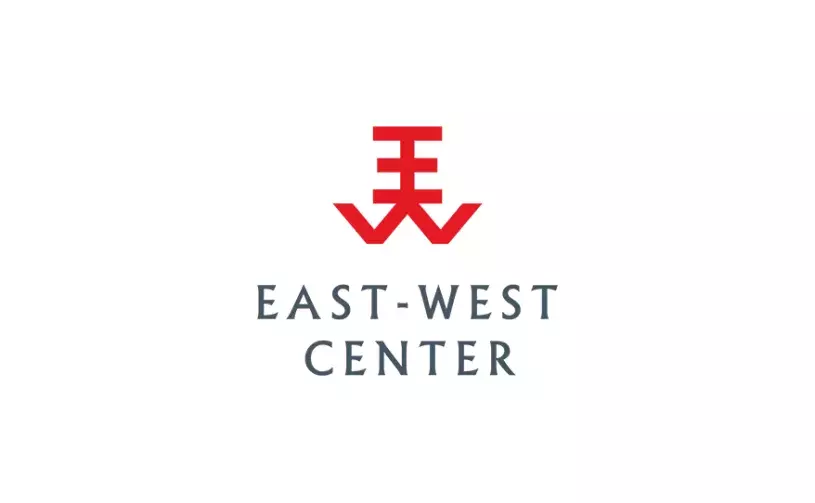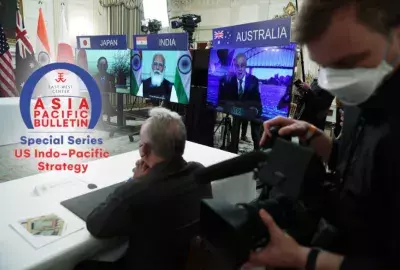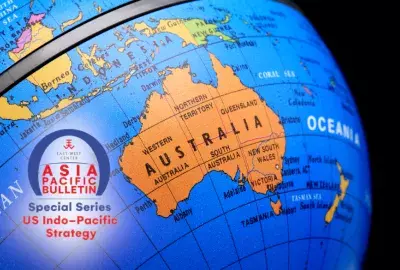Error message

|
Roie Yellinek, Doctoral Researcher at Bar-Ilan University, Israel, explains that "Similar to the struggle waged between the United States and the USSR during the Cold War, the United States and China have started to compete over areas of control and patronage." |
The construction of the “Northern” port in Haifa began in 2015 in cooperation between two Israeli companies, Ashtrom and Shafir. The first one hundred and eighty acres were transferred in July 2018 to Shanghai International Port Group Co. (SIPG), which won the tender to manage the port for 25 years. This sparked a heated discussion in the Israeli press, academia, and even the Israeli cabinet. The debate concerned the implications of the port’s management by a Chinese company for Israel itself and for Israel’s ties with its main strategic ally, the United States.
To this day there has been no official public reference, Israeli or American, to the subject, whereas the Chinese Vice Chairman of the Foreign Affairs Committee of the National People’s Congress Zha Peixin published an article in the “Haaretz” newspaper, titled “China does not Aspire to World Hegemony.” The piece portrayed a reassuring message for the Israeli public that China has no interest in exploiting its presence in order to increase control over the country, and has no interest in competing with the United States over world hegemony.
A few days later, an additional article was published in the Chinese newspaper South China Morning Post that belongs to Alibaba Group, whose founder and chairman Jack Ma is a member of the Communist Party of China. The article was titled “Israel reviews 2015 Haifa investment deal with China as Washington considers future of navy operations at port,” pointing an accusing finger at Washington that allegedly presses Israel to rescind the signed agreement between Israel and China regarding the “Northern” port management. The article also quotes Liu Naiya, from the Chinese Academy of Social Sciences, who claims that Israeli motives are based on “purely political consideration.” However, the article does not specify exactly what motives the Chinese researcher is referring to, but it is reasonable to assume that they refer to the politics between China, the United States, and Israel, since it is the main argument of the article.
First of all, the Chinese concern must be made clear and it should be emphasized that even if there will be any changes made in the contract signed between Israel and the SIPG and even if this case will lead to financial loss for the Chinese company, it is still unlikely that this is the motive behind China’s unusual article published in the Israeli newspaper. It is more likely that the Communist Party of China fears the “domino effect” and at the same time seeks to embarrass the United States on the home ground of one of its closest allies, Israel.
The situation over the northern port in Israel is not unprecedented in terms of raising questions about China’s role between two allies. Another example involves the close US-Australia alliance and China. The decision by Australia to sell Port Darwin to a Chinese company has created close scrutiny in the US-Australia relationship because it is a port near where the United States conducts a rotational deployment of forces. This specific example is nested in a wider discussion of the relative importance of China and the United States to Australia’s future. Something similar to this debate is occurring in the US-Israel relationship, though Israel’s dependence on trade with China is only about 9% whereas for Australia it is nearly 25%. Australia has other dimensions of reliance on China, such as immigration and students, that Israel does not.
In any case, the possible effect of the cancellation of the agreement between the Chinese company and Israel due to security and strategic concerns may be that other countries with similar characteristics will begin to re-examine their ties. This may include a more rigorous check of all the contracts, including those already signed, between Chinese companies and host countries. Such a situation could endanger China’s expansion plan — the Belt and Road Initiative — since without European cooperation, it is doubtful the Chinese initiative could be implemented, since one of the stated goals of the Chinese initiative is the rapid connection between China and European markets.
Relatively similar to the struggle waged between the United States and the USSR during the Cold War, the United States and China have started to compete over areas of control and patronage. The struggle for influence over Israel is very important for both countries. From Washington’s perspective, Israel is its oldest and most important ally in the Middle East, and one of the closest allies to the current US administration. From China’s perspective, the opportunity to increase influence in a country that maintains such close ties with the United States is an opportunity with broad implications on China’s international status. Israel’s renouncement of American patronage, even if only partial, will signal to other Western countries — and the United States itself — that its power and attractiveness are declining. Such a situation may help China to position itself as an alternative power to that of the United States, with economic focus and without direct political and military intervention and without guarantee for Israel’s security.
The Israeli port, despite being very important for the Israeli economy, where 99% of the goods arrive by the sea, is insignificant for the American economy, and might turn out to be a turning point in the relations between the three countries. The State of Israel should carefully consider the implications of each possible step and conduct an open dialogue with both parties to minimize possible harm to its interests. The United States and China need to develop a dialogue that will prevent them from deteriorating into a Cold War and struggles over areas of control that could escalate to the use of military force or the development of a wild trade war.
|
Roie Yellinek, Doctoral Researcher at Bar-Ilan University, Israel, explains that "Similar to the struggle waged between the United States and the USSR during the Cold War, the United States and China have started to compete over areas of control and patronage." |
The construction of the “Northern” port in Haifa began in 2015 in cooperation between two Israeli companies, Ashtrom and Shafir. The first one hundred and eighty acres were transferred in July 2018 to Shanghai International Port Group Co. (SIPG), which won the tender to manage the port for 25 years. This sparked a heated discussion in the Israeli press, academia, and even the Israeli cabinet. The debate concerned the implications of the port’s management by a Chinese company for Israel itself and for Israel’s ties with its main strategic ally, the United States.
To this day there has been no official public reference, Israeli or American, to the subject, whereas the Chinese Vice Chairman of the Foreign Affairs Committee of the National People’s Congress Zha Peixin published an article in the “Haaretz” newspaper, titled “China does not Aspire to World Hegemony.” The piece portrayed a reassuring message for the Israeli public that China has no interest in exploiting its presence in order to increase control over the country, and has no interest in competing with the United States over world hegemony.
A few days later, an additional article was published in the Chinese newspaper South China Morning Post that belongs to Alibaba Group, whose founder and chairman Jack Ma is a member of the Communist Party of China. The article was titled “Israel reviews 2015 Haifa investment deal with China as Washington considers future of navy operations at port,” pointing an accusing finger at Washington that allegedly presses Israel to rescind the signed agreement between Israel and China regarding the “Northern” port management. The article also quotes Liu Naiya, from the Chinese Academy of Social Sciences, who claims that Israeli motives are based on “purely political consideration.” However, the article does not specify exactly what motives the Chinese researcher is referring to, but it is reasonable to assume that they refer to the politics between China, the United States, and Israel, since it is the main argument of the article.
First of all, the Chinese concern must be made clear and it should be emphasized that even if there will be any changes made in the contract signed between Israel and the SIPG and even if this case will lead to financial loss for the Chinese company, it is still unlikely that this is the motive behind China’s unusual article published in the Israeli newspaper. It is more likely that the Communist Party of China fears the “domino effect” and at the same time seeks to embarrass the United States on the home ground of one of its closest allies, Israel.
The situation over the northern port in Israel is not unprecedented in terms of raising questions about China’s role between two allies. Another example involves the close US-Australia alliance and China. The decision by Australia to sell Port Darwin to a Chinese company has created close scrutiny in the US-Australia relationship because it is a port near where the United States conducts a rotational deployment of forces. This specific example is nested in a wider discussion of the relative importance of China and the United States to Australia’s future. Something similar to this debate is occurring in the US-Israel relationship, though Israel’s dependence on trade with China is only about 9% whereas for Australia it is nearly 25%. Australia has other dimensions of reliance on China, such as immigration and students, that Israel does not.
In any case, the possible effect of the cancellation of the agreement between the Chinese company and Israel due to security and strategic concerns may be that other countries with similar characteristics will begin to re-examine their ties. This may include a more rigorous check of all the contracts, including those already signed, between Chinese companies and host countries. Such a situation could endanger China’s expansion plan — the Belt and Road Initiative — since without European cooperation, it is doubtful the Chinese initiative could be implemented, since one of the stated goals of the Chinese initiative is the rapid connection between China and European markets.
Relatively similar to the struggle waged between the United States and the USSR during the Cold War, the United States and China have started to compete over areas of control and patronage. The struggle for influence over Israel is very important for both countries. From Washington’s perspective, Israel is its oldest and most important ally in the Middle East, and one of the closest allies to the current US administration. From China’s perspective, the opportunity to increase influence in a country that maintains such close ties with the United States is an opportunity with broad implications on China’s international status. Israel’s renouncement of American patronage, even if only partial, will signal to other Western countries — and the United States itself — that its power and attractiveness are declining. Such a situation may help China to position itself as an alternative power to that of the United States, with economic focus and without direct political and military intervention and without guarantee for Israel’s security.
The Israeli port, despite being very important for the Israeli economy, where 99% of the goods arrive by the sea, is insignificant for the American economy, and might turn out to be a turning point in the relations between the three countries. The State of Israel should carefully consider the implications of each possible step and conduct an open dialogue with both parties to minimize possible harm to its interests. The United States and China need to develop a dialogue that will prevent them from deteriorating into a Cold War and struggles over areas of control that could escalate to the use of military force or the development of a wild trade war.







